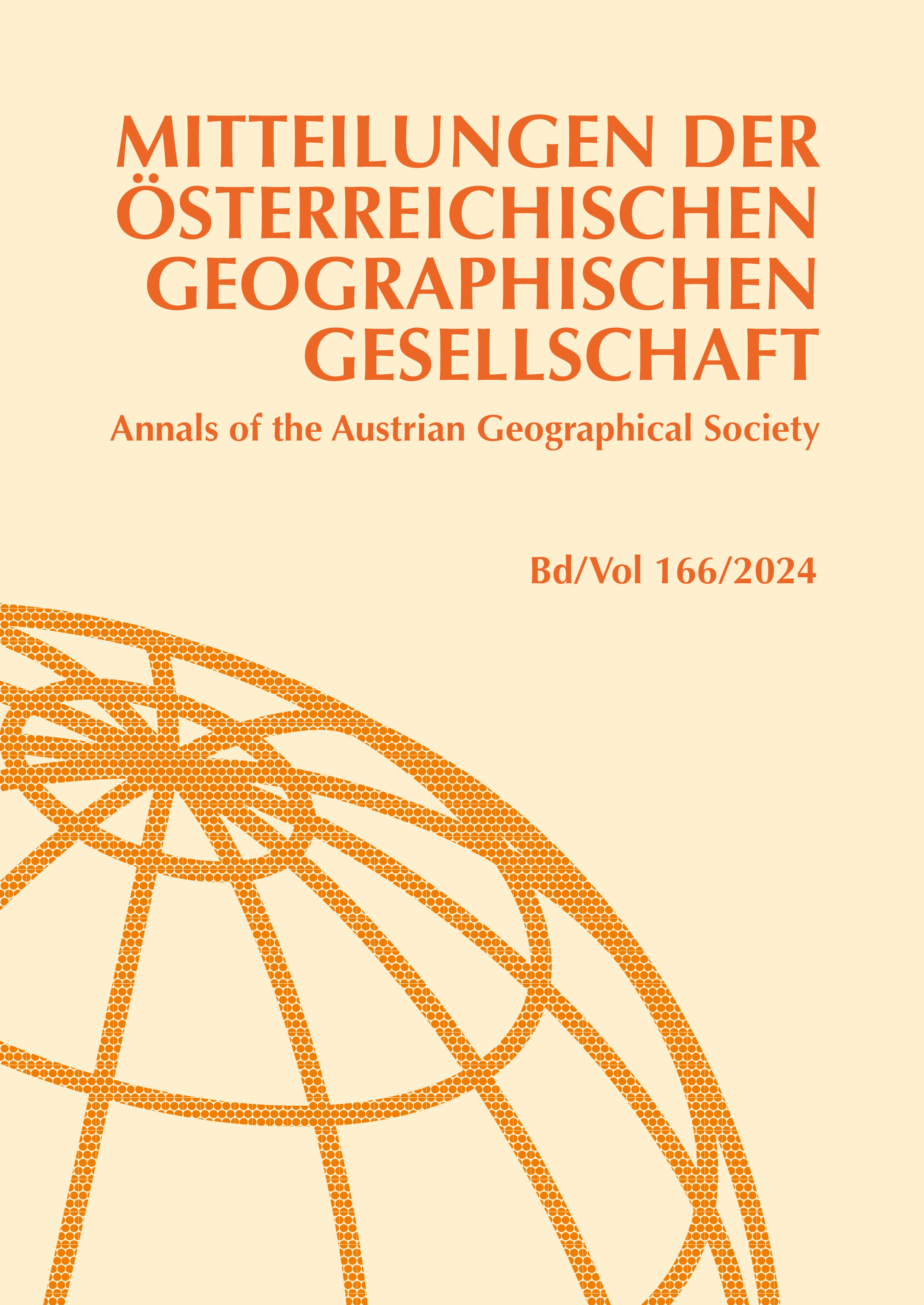
Mitteilungen der Österreichischen Geographischen Gesellschaft, Band 166/2024, pp. 181-206, 2025/04/30
Band 166 (Jahresband), Wien 2024
Volume 166 (Annual volume), Vienna 2024

This study examines the dynamics of social capital and the role of Thai-connotated spaces in fostering social relationships among Thai marriage migrants in Austria. It addresses a gap in migration studies concerning the dual nature of social capital and its spatial formation in small migrant communities. While existing research often emphasises the benefits of social capital in migrant integration, fewer studies explore its simultaneous exclusionary and conflict-inducing effects. Drawing on qualitative data supported by a survey, the findings reveal that Thai-connotated spaces, such as Thai temples, restaurants, and shops, act as vital hubs for bonding social capital, offering emotional and material support through networks of trust and reciprocity. These spaces enable migrants to nav-igate their new environments by sharing information on language learning, employment opportunities, and cultural adaptation while also fostering solidarity through shared ex-periences.
However, the study also uncovers the adverse effects of social capital, conceptualised as ‘social shackles’, where close-knit ties lead to exclusion, interpersonal conflicts, and social pressures. Jealousy, mistrust, and hierarchical relations often undermine mutual support, while cultural norms such as conspicuous consumption and the need to ‘keep face’ exacerbate tensions. Moreover, patriarchal control and exclusionary practices fur-ther marginalise certain individuals, illustrating the restrictive nature of social embedded-ness within the Thai migrant communities.
Keywords: Social capital, Thai migrant women, marriage migrants, migration, integration, diaspora communities, gender and migration